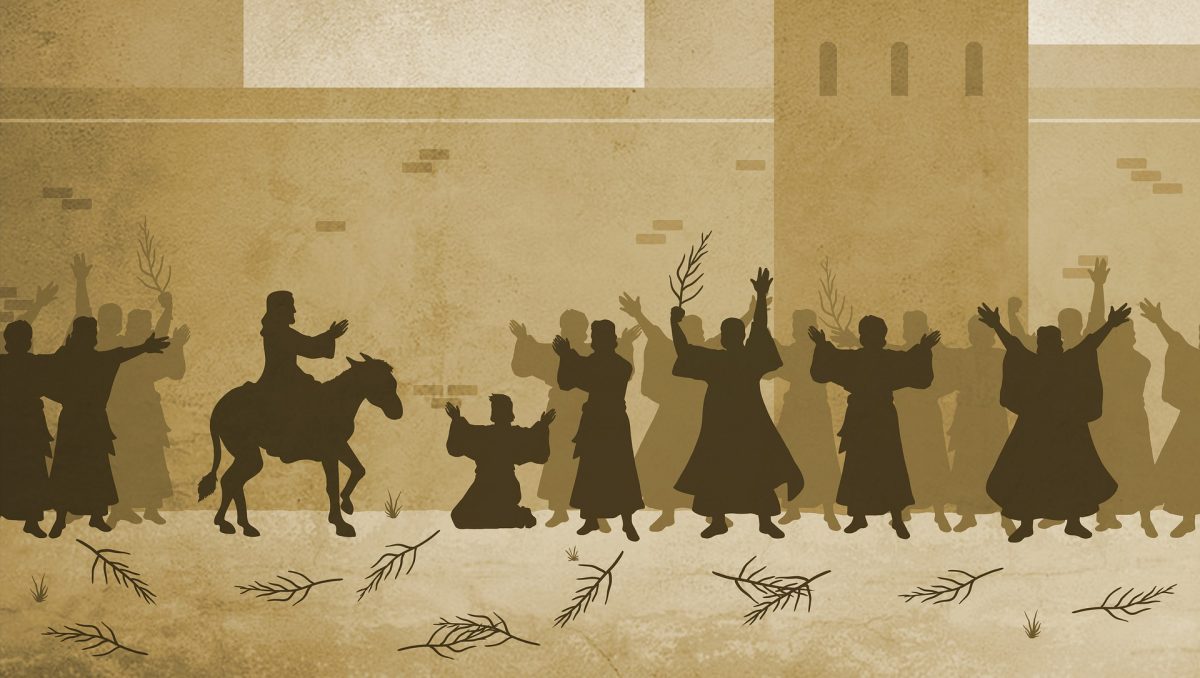Jijo Kandamkulathy, CMF
Claretian Publications, Macau
Lk 19:28-40
The Gospel reading before the procession on Palm Sunday is always about the royal entry of Jesus into Jerusalem, whereas the main reading of the day is the Passion narrative. This entry into Jerusalem will prepare the final backdrop to the violence meted out to Christ, violence that was reserved for the vilest of criminals.
It was the Passover season in Jerusalem. Jesus had travelled around 100 kilometers from Galilee with a large group of followers. In such pilgrimages, it was usual for the people of a village or town to go together. Moreover, Jesus had become an accepted leader of Galilee and of a significant number of followers who accompanied Him. Their arrival was a spectacle in the eyes of the people of Jerusalem.
About 20 years ago, another Galilean by the name Judas had come to Jerusalem, rebelling against Rome. The Temple authorities had a vivid memory of how the Romans killed them and put down the rebellion. But Judas had left a philosophy with the Jews that they were to be ruled only by God. A large majority of people might have concurred with this idea. What the Temple authorities knew very clearly is, if another uprising were to take place, the Temple and everything sacred would be completely taken over by the Romans. They were afraid that Jesus and His disciples had a rebellion in mind!
Unlike warrior kings who rode horses, Jesus entered the Temple area on a humble colt. The full impact of the symbolism of the “king on the colt” is understood only if we read the account in the Gospel of Matthew where reference is made to a donkey and a colt, not one animal but two. The text is directly taken from the Book of Zechariah 9:9 where two animals are mentioned. The donkey and its offspring prefigure the Jewish religion and its offshoot, the Catholic Church. Jesus on the donkey not only recalls the prophecy of the Messiah arriving on a humble donkey but also a peaceful taking over of Jerusalem. The Jews of the time, with the oppression of the Romans, might have recalled this part of Zechariah’s prophecy by heart, as expectation about the arrival of the Messiah was rife in the air.
The previous verse (Zechariah 9:8) speaks of taking possession of the Temple. So, the people there presumed that Jesus was going to take over the Temple forever from the Roman forces and the half-blood-Jew, Herod, and would do so peacefully. They were certainly correct in their surmise about Jesus’ arrival as the King of Peace. Watching the prophecies of Zechariah unfold before them in glaring detail, with Jesus’ entrance into Jerusalem, His journey to the Mount of Olives and His interrogation, convinced the people that Jesus was undoubtedly the Messiah.
Giving this Messianic aura to Jesus was exactly what scared the high priest and his company. Their conspiracy was to erase that concept altogether from the mind of the people. The attempt to put Jesus to trial as a Galilean aimed at sowing doubt that the Messiah was not supposed to come from Galilee. For the Temple authorities, protecting the Temple and business was of supreme importance! The Messiah was not supposed to come at that time!!
The people were expecting a physical takeover of Jerusalem by Jesus, and that He would begin His rule from Jerusalem. This line of thinking would understandably arise from a literal reading of the prophecies of Zechariah. Even the disciples believed in this physical taking over. It is in this context that we understand why the disciples were arguing on their way to Jerusalem about who would get the more important positions in the kingdom of Jesus. And the sons of Zebedee came with their mother to request the most important places on the right and left of Jesus. They were thinking about an earthly kingdom, not the kingdom of heaven! Remember that Jesus was asked if He was a king. Never had Jesus spoken about His kingship before. But the kingship came under interrogation exactly because of this prophecy that the people were enacting with the entry of Jesus on a donkey. Jesus would invalidate that expectation and teach Pilate a lesson on the heavenly kingdom.
The Jewish belief was that the Messiah would enter the Temple Mount from the East Gate (the Golden Gate), which Jesus did on that day. This is a beautiful convergence of many Messianic prophecies. Remember, even the mention of Bethany, which lies to the east of the city, is to highlight the coming of the Messiah from the east!
A kingdom, most significantly, has a king, subjects, a territory, and laws and regulations to govern. In the case of the kingdom of God, we know clearly that Christ is the king. His territory is the whole universe and is not limited to the divisions drawn on the face of the earth by people. What we need to do to belong to His kingdom is to live by the laws of His kingdom, which are predominantly (invested in) love. He enlists into His kingdom those who are willing to DIE FOR LOVE. (Photo: jeffjacobs1990 at Pixabay)


 Follow
Follow


